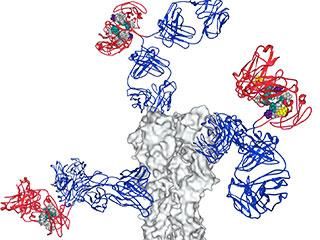Novartis awarded up to USD 220 million for development of cell culture-derived influenza vaccine
Advertisement
Novartis announced that the US Department of Health and Human services (HHS) has awarded Novartis vaccines up to USD 220 million to support the development of a cell culture-derived influenza vaccine, both to supply seasonal influenza vaccine and to respond rapidly in the event of an influenza pandemic.
Cell culture-derived influenza vaccines (commonly referred to as "flu cell culture" vaccines) use modern biotechnology cell cultures rather than chicken eggs for primary production. Current egg-derived vaccines production requires several months of logistics for ordering and receiving eggs. This lead time can hinder the response to unanticipated demands such as the discovery of pandemic strains, production failures and seasonal influenza virus strain changes. In contrast, flu cell culture production enables flexible, faster start-up of vaccine manufacturing, and is independent of the availability of eggs, providing a particularly important advantage in the event of an influenza pandemic.
The award made to Novartis is part of a larger HHS initiative to expand US domestic influenza vaccines infrastructure. The government's objective is to have capabilities to producing 600 million doses of pandemic influenza vaccine within six months of the declaration of a pandemic, with up to 150 million doses coming from a planned Novartis US facility.
The HHS contract commits up to USD 220 million over five years to support product development as well as facility and equipment design and validation. Novartis plans to invest additional resources to ensure the successful establishment of a US-based vaccine manufacturing facility. Discussions between Novartis and potential US site candidates are ongoing.
Topics
Organizations
Other news from the department research and development

Get the life science industry in your inbox
By submitting this form you agree that LUMITOS AG will send you the newsletter(s) selected above by email. Your data will not be passed on to third parties. Your data will be stored and processed in accordance with our data protection regulations. LUMITOS may contact you by email for the purpose of advertising or market and opinion surveys. You can revoke your consent at any time without giving reasons to LUMITOS AG, Ernst-Augustin-Str. 2, 12489 Berlin, Germany or by e-mail at revoke@lumitos.com with effect for the future. In addition, each email contains a link to unsubscribe from the corresponding newsletter.


























































